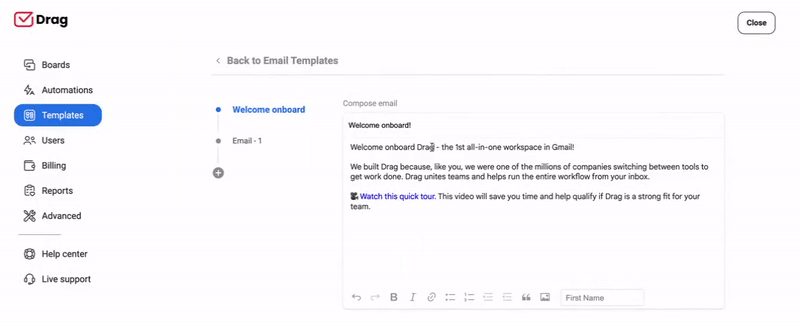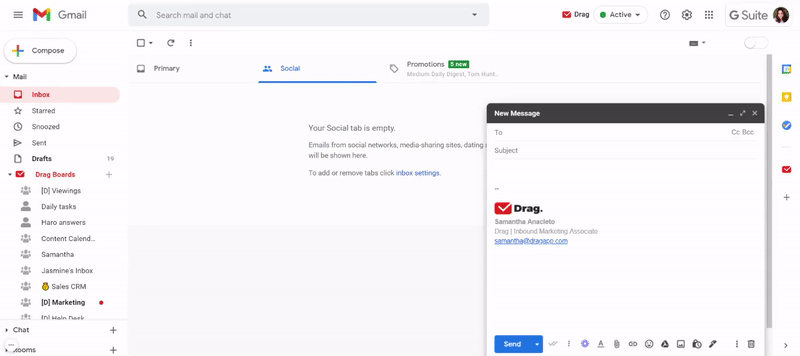
If you are tired of writing the same email over and over again, or even copying and pasting the content on new ones, you seriously need to learn how to create email templates. This guide will talk specifically about how you can do this in Gmail, with simple and easy steps that won’t take much of your time.
Besides, you are going to notice how much time you will gain, and learn how to share these templates with your team to unify all the communication between clients, partners, and providers.
So let’s cut to the chase. Here are the topics we will approach on this complete guide:
How to Create Email Templates in Gmail
Creating templates in Gmail is a simple task, that takes just a few minutes. In fact, the only step that will make you spend more time on this process may be typing the email template, if you don’t have it already.
First things first, you need to enable the templates on Gmail settings. You can simply follow these steps:
- Click on Settings (represented by the gear icon) in the top right corner of your screen.
- Then click the button “See all settings”.
- Select the tab “Advanced”.
- In the section “Templates” choose “Enable”.
- Finally, click “Save Changes” at the bottom of the menu.
This last action will redirect you to your inbox so that you can start creating templates:
- Click on the “Compose” button. The New Message window will open.
- Start typing your email template and when you’re done, click on the three dots on the bottom-right corner of the compose window.
- Hover the option “Template” and next on “Save draft as template”.
- Chose the option “.Save as new template”.
- Enter the name of the new template, then hit the save button.
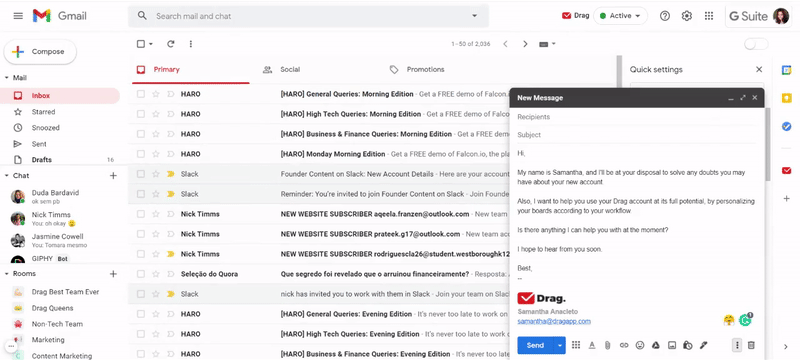
Sending email templates
Sending a new message using a template is as simple as creating one. You will only need a few clicks:
- Start a new email draft by clicking the “Compose” button.
- Click the three dots in the bottom right corner of the compose window.
- Hover the cursor on “Templates”.
- Choose the template you want to use.
- The template will appear on the compose window, and you will be able to edit it before hitting “Send”.
You can also automate the sending messages from templates, by setting up Gmail filters. For example, you can create a filter for emails containing certain terms or keywords, filing the field “Has the words”. Or even putting email addresses from people to whom you will need to reply, on the field “From”.
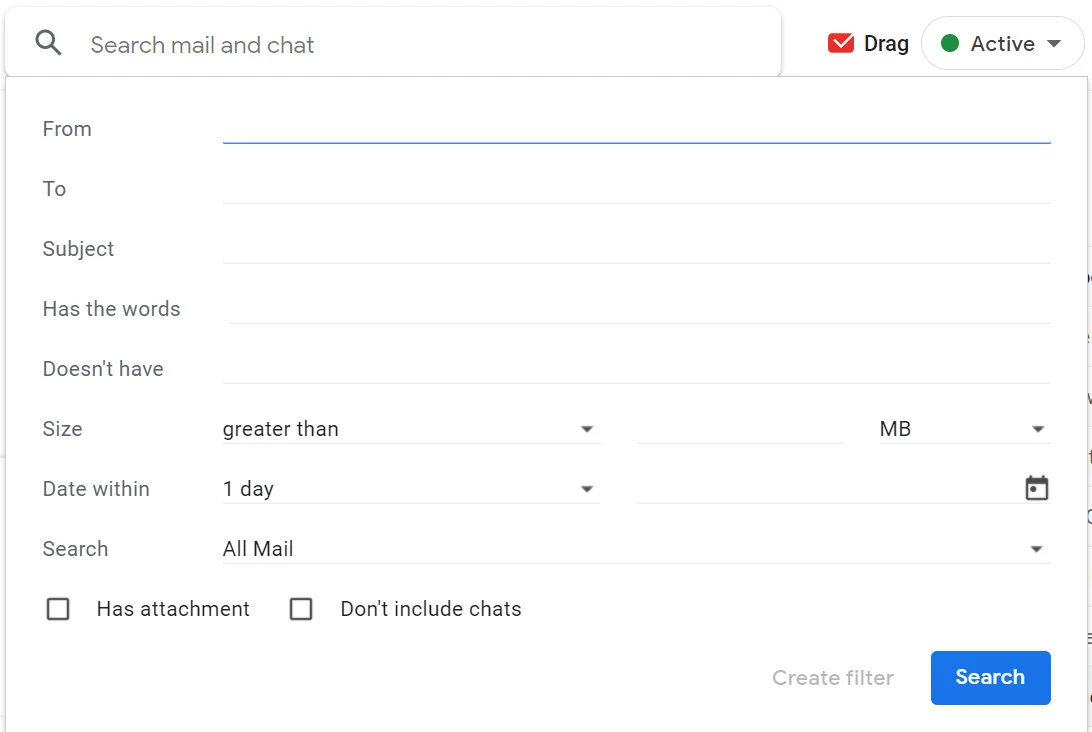
Once you create a filter, you can set actions to perform on the filtered criteria. And here’s where you can choose the template you want to send to the specified receivers.
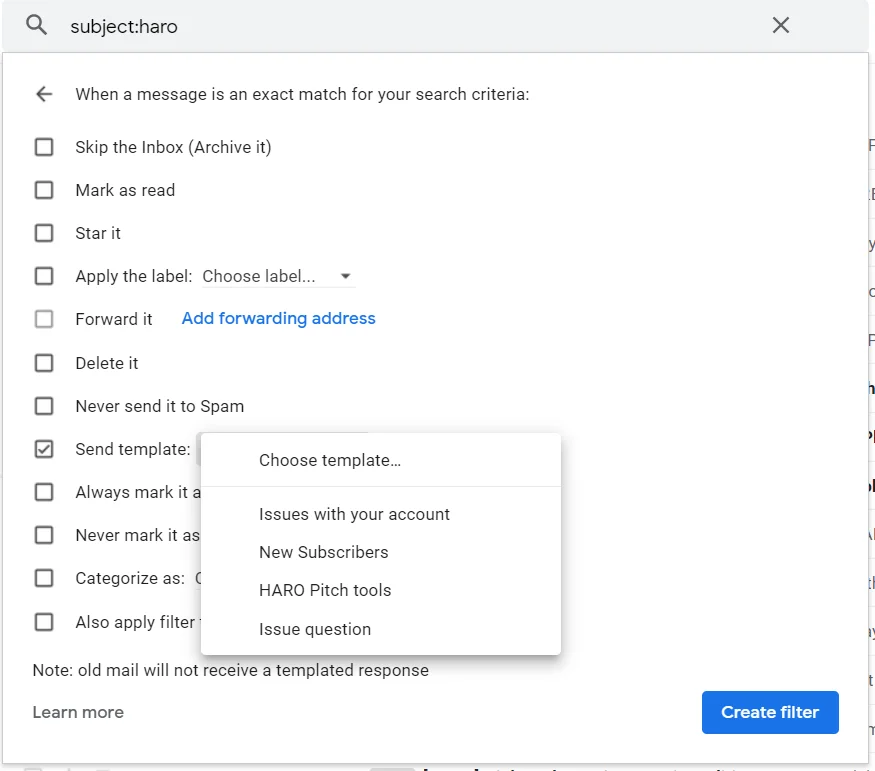
You just need to mark the checkbox “Send template”, and choose the template you desire. Every email with the criteria you’ve selected will automatically receive a template. But be careful and use this feature wisely choosing very specific keywords, for example. This way you will avoid any misunderstandings.
How to manage existing templates
Most of the time when you use templates you will need to edit them somehow, for example, to add a piece of information. Or it can happen that a template is no longer useful and you need to delete it.
That’s why in Gmail you can edit them in two ways: overwriting an existing one or deleting it.
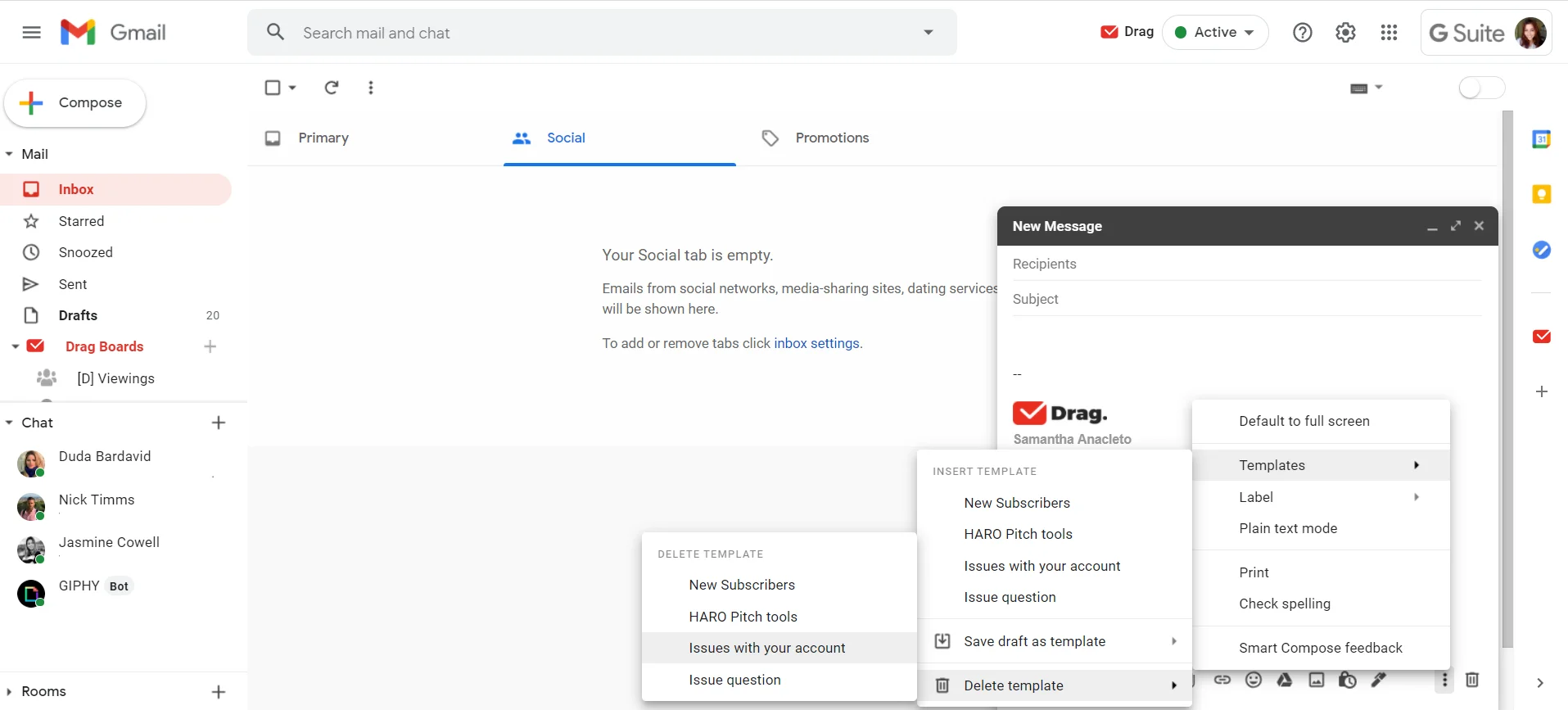
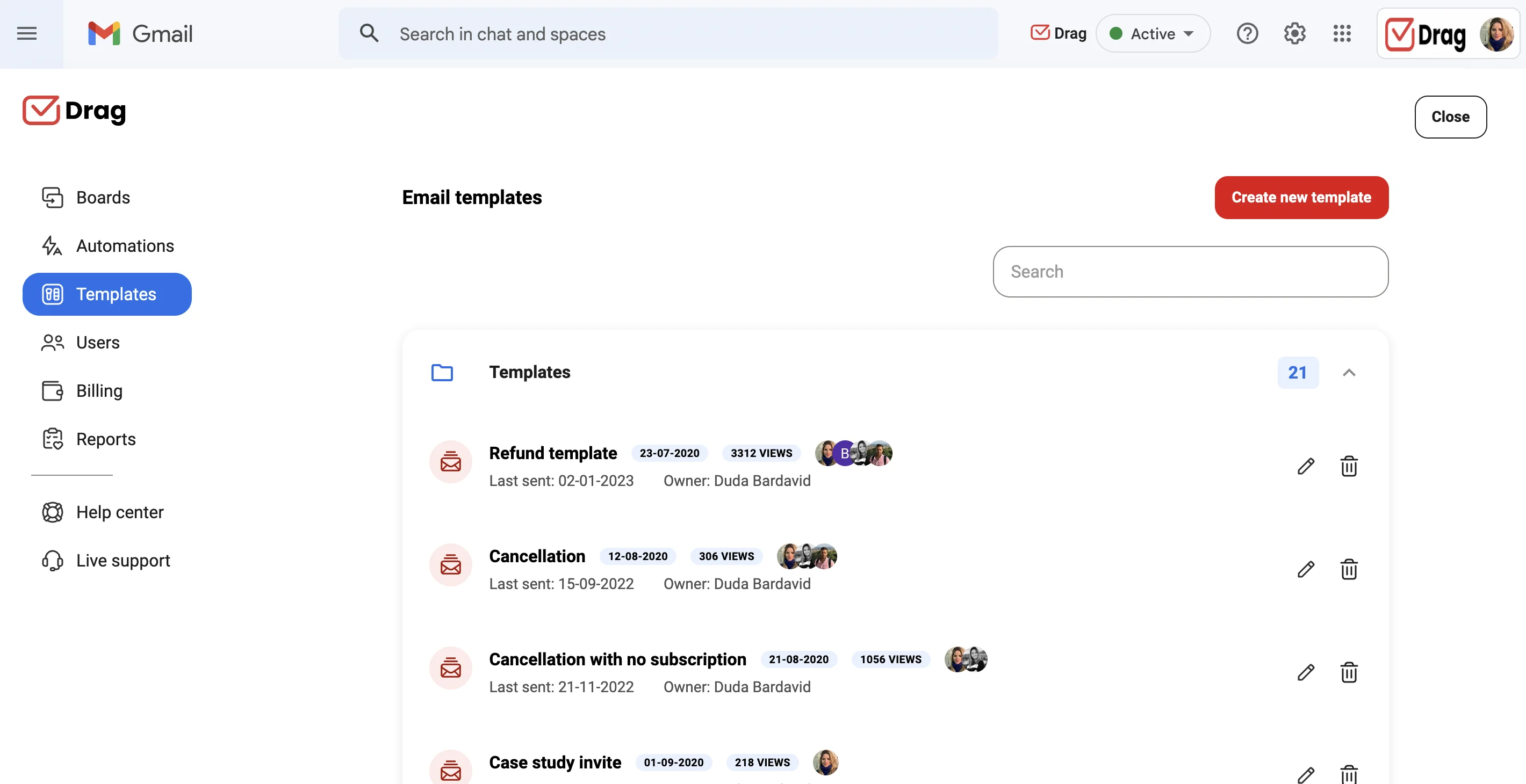
Deleting a template
To delete a template, click again on the three dots on the bottom right of the compose window. Hover the option “Templates”, then “Delete template” and choose the template you want to delete.
Overwriting a template
In case you want to make changes in one of your templates, you can’t edit, unfortunately. But it’s possible to overwrite it.
First, you need to write the new version of the template, and then click the three dots on the bottom right corner of the compose window. Next hover “Templates” and after “Save draft as template”, click the name of the template you would like to change under “Overwrite Template”.
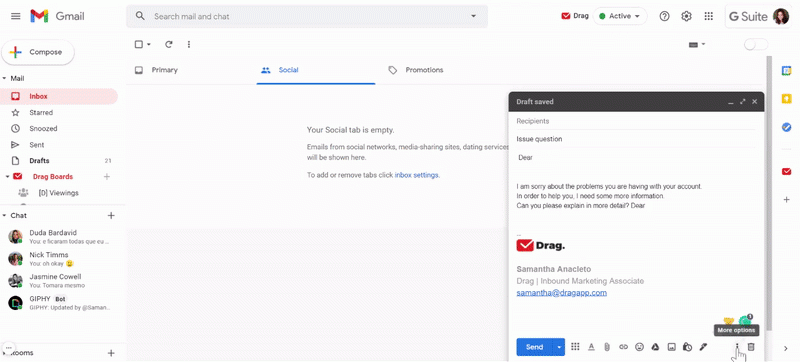
Email templates in Gmail for businesses
If you use Gmail as your business email, you know the importance of giving a custom touch to the messages, at the same time aligned with your team’s tone of voice and branding. This includes your both content and signature in an email. However, the right way you can have it all is by using Gmail templates with an email signature management tool.
Unfortunately, vanilla Gmail is limited to these aspects, offering only what we have explained on the previous topics: create simple templates, overwrite and delete them. Besides using them on filters, that is a more advanced action inside Gmail.
That’s why there are extensions you can use to improve your experience within Gmail, Drag being one of them. Drag helps you to run your entire workflow using emails and tasks, that you can share with your team without leaving your inbox.
This specific characteristic is the main core of Drag: sharing everything you need to work with your team inside Gmail. Including templates. Besides having its own system of shareable email templates, you can combine them with email sequences and personalized fields, on the contrary of using only Gmail.
Templates + email sequences
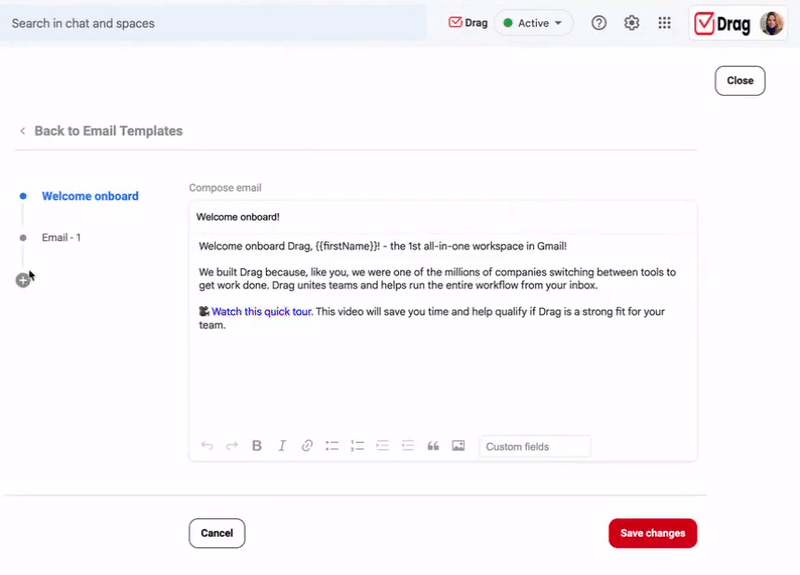
You can set Drag email templates as email sequences, which is great for teams that need to send follow-ups to leads, clients, or partners, for example. With Drag you can add these sequences to any email template you desire automatically. Imagine doing this in Gmail: you would need to create templates manually, email by email.
Personalized fields
You can use custom fields to add the receiver’s First Name, Last Name, and Company, to make the email look much more personal. This is a good practice when sending any email, mainly for outreach. One great aspect of Drag’s custom fields is that they are automatically inserted into email follow-ups, so you will only need to fill them manually the first time.
Shared email templates
You can also share Drag email templates with your team members, synchronizing them, and keeping a pattern of messages across your whole organization. This leads to transparency and consistency in your branding, which are key factors to reach the public and keep them interested in your company.
Notice that Gmail templates are only available per email address, so the only way of sharing them is by copying and pasting the same templates in each employee’s account.

